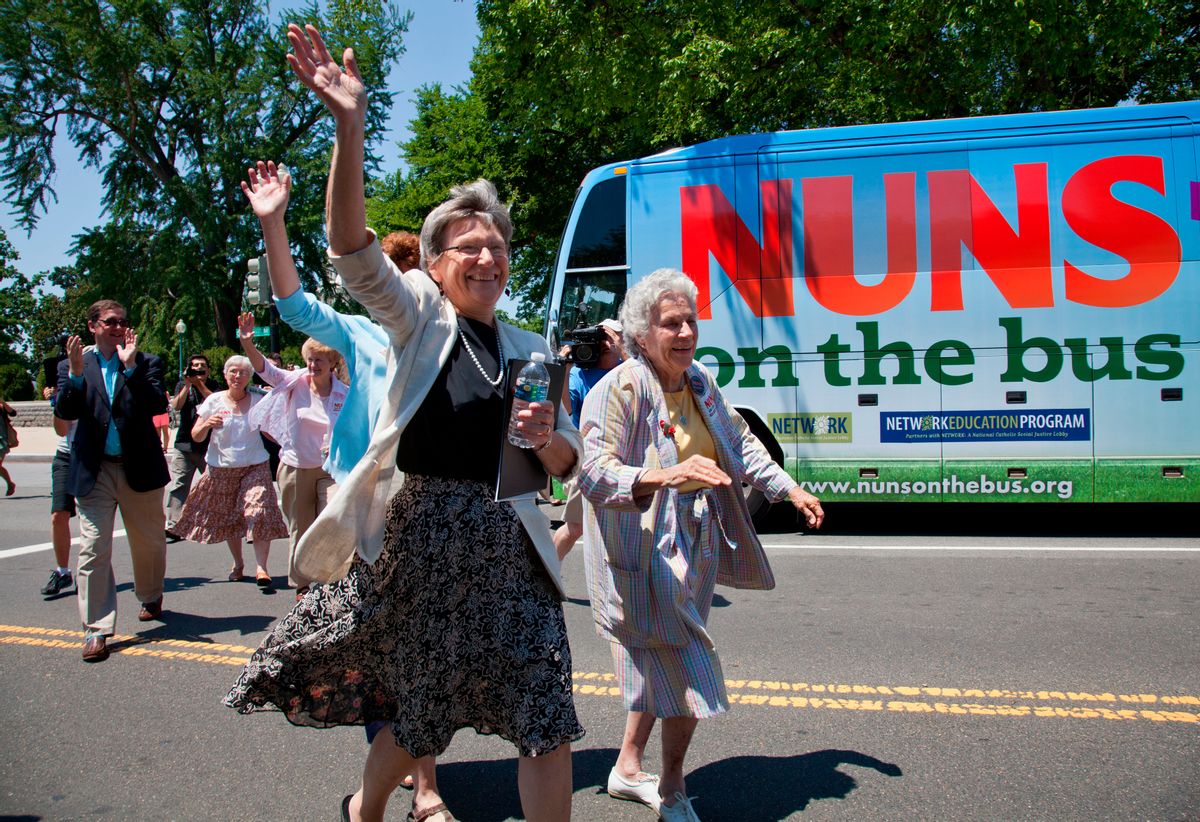While politicians like Rick Perry and pundits like Bill O'Reilly may clog up a lot of media airtime, the proportion of religious conservatives in the United States is shrinking with each successive generation, and close to 20 percent of Americans today are religious progressives, according to a new survey conducted by the Public Religion Research Institute and the Brookings Institution.
Religious conservatives account for 28 percent of the total population (38 percent are religious moderates and 15 percent are nonreligious), but religious progressives already outnumber them in the millennial generation:
Religious progressives are significantly younger and more diverse than their conservative counterparts. The mean age of the religious progressive population is 44 – just under the mean age in the general population of 47 – while the mean age of religious conservatives is 53. Twenty-three percent of Millennials (ages 18-33) are religious progressives, while 17 percent are religious conservatives. Among Millennials, there are also nearly as many nonreligious (22 percent) as religious progressives.
Religious progressives are also significantly more diverse than religious conservatives:
Catholics (29 percent) constitute the largest single group among religious progressives, followed by white mainline Protestants (19 percent), those who are not formally affiliated with a religious tradition but who nevertheless say religion is at least somewhat important in their lives (18 percent), and non-Christian religious Americans such as Jews, Buddhists, Hindus and Muslims (13 percent). Notably, white evangelical Protestants constitute only four percent of religious progressives. By contrast, white evangelical Protestants constitute more than 4-in-10 (43 percent) religious conservatives, followed by Catholics (17 percent) and white mainline Protestants (15 percent). Black Protestants comprise about 1-in-10 of both the religious progressive (9 percent) and religious conservative (8 percent) coalitions.
They also tend to value different things in their faith:
Nearly 8-in-10 (79 percent) religious progressives say that being a religious person is mostly about doing the right thing, compared to 16 percent who say it is about holding the right beliefs. A majority of religious conservatives (54 percent), on the other hand, say being a religious person is primarily about having the right beliefs, while 38 percent say it is mostly about doing the right thing.
While it's probably too early to declare victory over the Pat Robertson types, the survey definitely suggests a new political future -- with religious progressives wielding growing influence -- is possible: “Religious conservatives are a known quantity and they play an important role in our politics,” said E.J. Dionne, Brookings senior fellow. “But this survey also shows that religious progressives are a more significant group than is usually assumed, and that there is a strong social justice constituency among religious Americans that cuts across labels.”



Shares